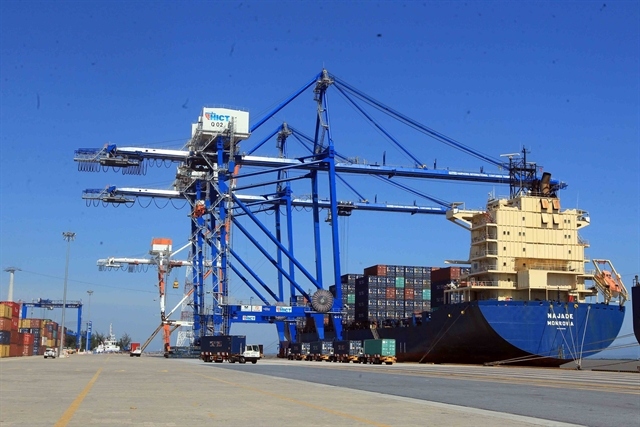Vietnam expected to emerge as a prominent logistics player in Asia
Vietnam’s logistics industry is gaining recognition in the global market, with growing expectations that it will emerge as a “rising star” in Asia.

This is due in large part to the country’s efforts to develop its supply chain industry and benefits from ‘China plus’ sourcing strategies of major multinational manufacturers.
The industry has witnessed annual growth of 14-16% which has solidified its position as one of the fastest-growing and most stable sectors in the country with a total value of US$40 billion to US$42 billion a year.
According to Agility Emerging Markets Logistics Index 2023, Vietnam moved into the top 10 of the Index among 50 global markets, advancing one position compared to the previous year.
Agility’s ranking is based on four criteria including domestic opportunities, international opportunities, business fundamentals and digital readiness.
This recognition can be attributed to several factors, including the country’s strategic location, favourable investment policies and the Government’s ongoing efforts to improve infrastructure and streamline regulations.
Among these criteria, Vietnam is leading Southeast Asia and ranks fourth globally in terms of global opportunities with a score of 6.03 out of 10. The country has benefited greatly from the “China plus” policy as major global manufacturers are seeking to diversify their supply chains to reduce reliance on the Chinese market.
According to Agibility, Apple has been at the forefront of moving production to Vietnam. In 2020, it began planning to expand assembly operations in Vietnam, requesting its major supplier Foxconn to expand its assembly operations in the country. Sony, Samsung and LG have also expanded production in Vietnam, building airfreight infrastructure in Hanoi to support their assembly of mobile phones.
Vietnam’s furniture industry is also a key beneficiary of this trend with its share of global exports rising from 11% in 2019 to 17% in 2022 while at the same time, China’s share has fallen from 61% to 53%.
Vietnam’s competitiveness has also been boosted by the growth of both domestic and export e-commerce, transforming it into a major hub for global product transhipment.
Tran Thanh Hai, deputy director of the Import-Export Department under the Ministry of Industry and Trade, says the country’s import-export value reached a record high of US$732 billion in 2022, up 9.5% year on year, was partly attributable to the improved quality and quantity of logistics services offered by businesses.
Moreover, the Vietnam Maritime Administration has recently embraced the trend of green technology in the shipping industry to reduce fuel consumption, lower carbon emissions, and mitigate the effects of climate change.
However, the logistics industry in Vietnam has not developed adequately due to the lack of connections between logistics service providers and manufacturers, traders and import-export businesses. Experts in Vietnam's logistics sector stress the critical need for greater collaboration with enterprises.
Nguyen Xuan Hung, deputy general director of Ratraco, wants to expand the network of shipping, warehousing and equipment suppliers to enhance the domestic and international rail transportation systems for refrigerated containers.
"This not only diversifies the product range and offers inland cold transport solutions, but also provides a solution to shippers' concerns about supplying and delivering chilled products to the Chinese market," he said.
Despite Vietnam being in an advantageous position to capitalise on China's challenges, the Vietnamese Government still has a considerable amount of work to do in order to establish a strong industrial ecosystem that can attract top-notch manufacturers and foster the growth of local suppliers that add value.
